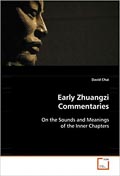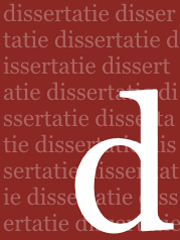start > Klassieke teksten > Personen/auteurs > auteur
Lu Deming 陸德明 [Lu Te-Ming]
Lu Deming 陸德明 [Lu Te-Ming] (ca. 550-630 na Chr.)
Lu Deming is de omgangsnaam (courtesy name) van Lu Yuanlang 陸元朗. Hij was een Confucianistische geleerde uit de vroeg Tang periode 唐 (618-907).
Lu Deming is de auteur van de Jingdian Shiwen (經典釋文) - Explanative writings to the classical canons.
De Jingidan shiwen is het resultaat van een jarenlange verzameling van commentaren op de klassieken en enkele daoistische teksten zoals de Laozi en Zhuangzi. Hij raadpleegde meer dan 130 boeken waaronder fonetische commentaren, geschreven tussen de Han (206 v.Chr. -220 n.chr.) Sui periode (581-618). (Ulrich Theobald - Chinaknowledge
Ctxt.org geeft de volgende samenvatting: Jingdian Shiwen (經典釋文 Jīngdiǎn shìwén, literally Textual explanations of classics and canons), often abbreviated as Shiwen in Chinese philological literature, was a c. 583 exegetical dictionary or glossary, edited by the Tang dynasty classical scholar Lu Deming. Based on the works of 230 scholars during the Han, Wei, and Six Dynasties periods, this Chinese dictionary analyzes the pronunciations (given in historically invaluable fanqie annotations) and meanings of terms in the Confucian Thirteen Classics and the Daoist Daodejing and Zhuang Zi. It also cites some ancient books that are no longer extant, and are only known through Jingdian Shiwen.
Bernhard Karlgren considered Jingdian Shiwen and the 601 Qieyun rime dictionary as the two primary sources for reconstructing Middle Chinese. Many studies in Chinese historical linguistics (for instance, see References) use the important Jingdian Shiwen data.
Het commentaar op de Zhuangzi is de Zhuangzi Yinyi 莊子音義 “Pronunciation and Meaning in Zhuāngzǐ. Harbsmeier zegt er het volgende over:
De Zhuangzi Yinyi is part of a vast, highly professional work of lexical and phonological analysis which often quotes evidence from earlier commentators. Given that Zhuāng Zhōu was categorised as “unrestrained and unscrupulous” (放蕩), it is remarkable that he was selected for inclusion in Lù Démíng’s great philological work. One gets a feeling that this commentary was something of a real labour of love.
We count forty texts that Lù Démíng quotes from in his meticulous commentary.
It is thought that Lù Démíng started working on the Zhuāngzǐ yīn yì 莊子音義 around 583 and opinions vary widely when exactly he may have finished the great work. For Emperor Tàizōng 太宗 himself to praise the thing it must have been current during his reign.
Lù Démíng’s characterisation of Zhuāng Zhōu elaborates on what is already stated in Chapters 27 and 33: “By and large they are all yù yán, and when one boils them down to the underlying principles one must not give priority to literalness” (大抵皆寓言,歸之於理, 不可案文責也。). (Harbsmeier 2024 p21)
David Chai geeft een vertaling van het commentaar op de innerlijke geschriften:
- Chai, David (2008). Early Zhuangzi Commentaries: On the Sounds and Meanings of the Inner Chapters
De Engelse vertaling van het voorwoord bij zijn commentaar op de Zhuangzi is te vinden in:
- Harbsmeier, Christoph (2024). The Inner Chapters of the 'Zhuangzi': With copious annotations from the Chinese commentaries. Harrassowitz Verlag. p228-229
Klassieke teksten
- commentaar bij de Zhuangzi (De geschriften van Zhuang zi)- commentaar bij de Laozi (Schrift van de Dao en innerlijke kracht)
Literatuur
Boeken 1 tot 2 van de 2
Boeken 1 tot 2 van de 2


